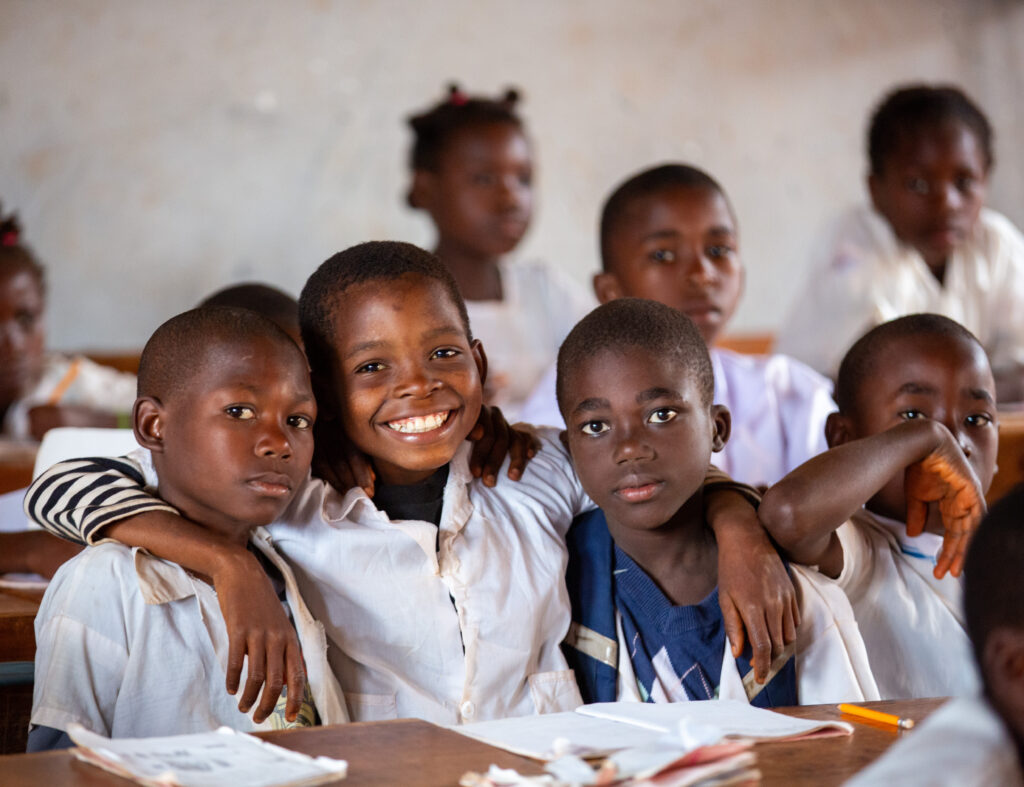Expansion of deworming treatment brings enormous benefits in Angola, as some regions still lack resources
By Gaspar Micolo
13-year-old Ana Miguel performs in an educational play for her community in Golungo Alto in northwestern Angola. The young actress plays a student who receives medicine to treat intestinal worms from a community volunteer. Ana Miguel explains, “I am proud of my performance in the play as it helps show how effective and important the treatment is.” People from throughout Ana’s village watched as they awaited the beginning of the annual deworming campaign.
The performance serves to educate the audience about the benefits of receiving treatment for intestinal worms and schistosomiasis infections. These two parasitic diseases have serious impacts on children’s health and development. However, annual deworming is highly effective at treating children and driving down levels of infection in their communities.
During this campaign, more than 250,000 doses of albendazole to treat intestinal worms are administered across the province. In five days, nearly 300 community volunteers spread out to hundreds of villages and schools to provide deworming treatment. Since 2014, more than 15 million people have been treated for intestinal worms and schistosomiasis.
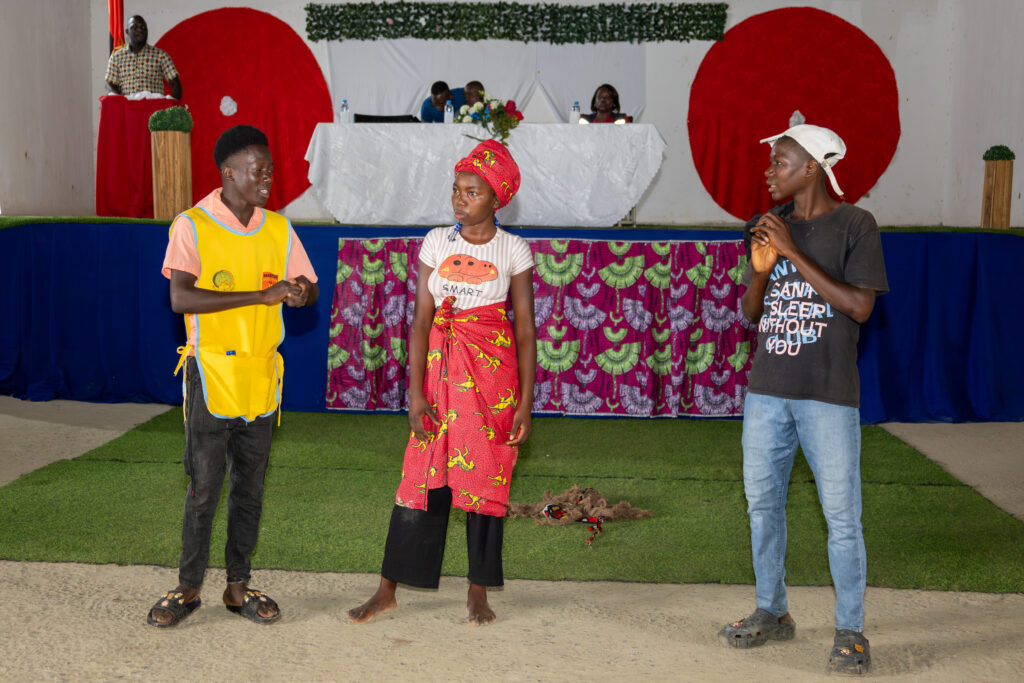
António Zangui, a representative of the local government, celebrated the initiation of the campaign. “The fight against neglected tropical diseases is a priority for the Cuanza Norte government,” he stated, and thanked partners such as the Mentor Initiative who helped make the campaign possible.
Luís Lufunda, the coordinator of the Mentor Initiative, points out a group of young people in yellow vests in the audience. “These are the volunteers who visit remote areas to deliver medicines,” he explains. The volunteers are from the communities they serve, so they are trusted in the villages and schools they visit.
“At the beginning of the deworming campaigns, the challenges were tremendous,” says Lufunda. “Community trust had to be earned. There was a lot of resistance, as it was not believed that you could take medication preventively, that is, without being hospitalized or sick.” Trust was built through community outreach and education. Conversations with parents about the benefits of deworming for their children has been key.
“It’s an important treatment, but parents don’t always understand it,” said volunteer drug distributor Edgar Silva. “We still need a lot of awareness raising actions.”
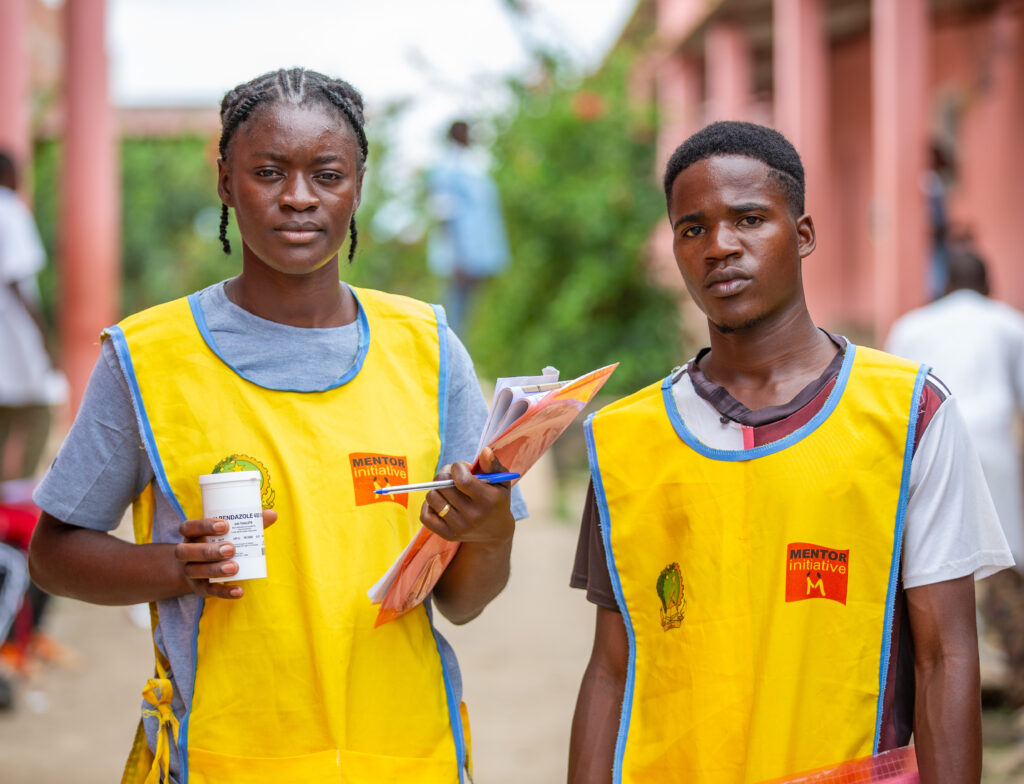
Furthermore, Angola has made great progress in expanding the deworming program to reach children outside of school. Campaigns were initially only conducted in schools, but this approach missed very young children and those who did not have access to formal education. It is crucial that these groups are treated as a matter of health equity, as well as from an epidemiological perspective–treating more children helps to reduce the number of parasite eggs in the environment that perpetuate the cycle of infection. With the support of the END Fund and its partners, Angola’s national neglected tropical disease program shifted to community-based distribution to ensure that no children would be left behind. Community drug distributors now conduct home visits to identify and treat children who might otherwise be neglected.
Since the campaigns began in 2022, the improvements to children’s energy and well-being are evident to their teachers, and school attendance has increased. Samuel Elavoco, representative of the local public health department, explains that intestinal worm infections prevent children from learning and attending school. “When a child doesn’t feel well, they have difficulty to go to school,” he says. Professor Carlos Machado’s students used to complain about constant stomach aches, and he had to take several to the hospital for treatment. But he saw his students’ health improving with regular deworming treatments. “I see them growing up like children,” he said. “I feel good seeing them without complaints of stomach pains.”
Studies have demonstrated the profound impact on children of receiving medication for deworming. The parasites live in the intestinal system, which leads to stomach pains, malnutrition, and anemia. Infected children feel lethargic, and are more likely to miss school. One long-term study compared classrooms that received treatment to those that did not and found that the children who received treatment missed less school – and once they entered the workforce, they also earned more money.
Erivaldo Domingos António, a vibrant 12-year-old student who attends school in Golungo Alto, ran to take albendazole on the day of the campaign. He’s taken the treatment before and was happy to receive it again. “It was my mother who told me to take it the first time, since then the stomach pains stopped.”
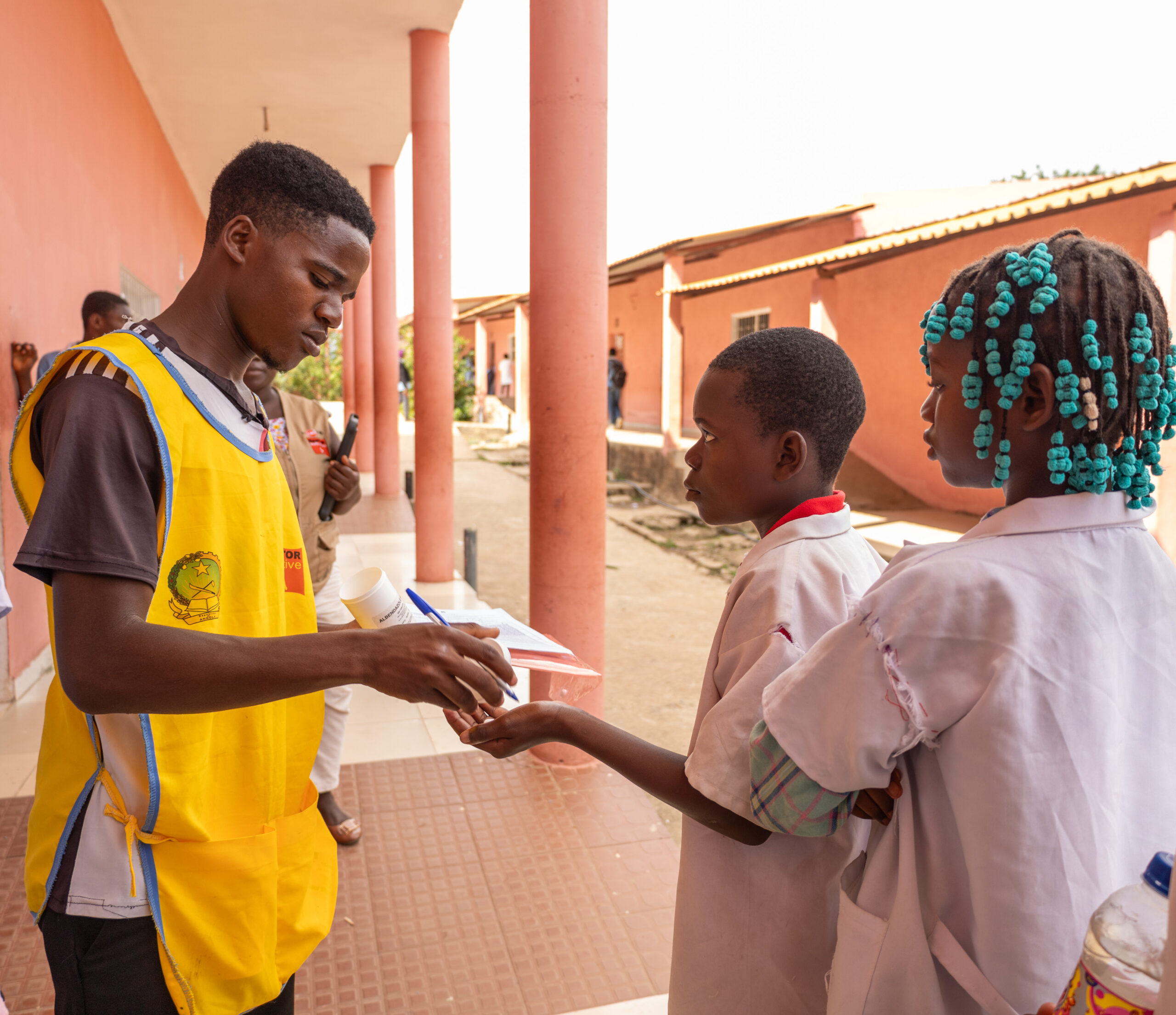
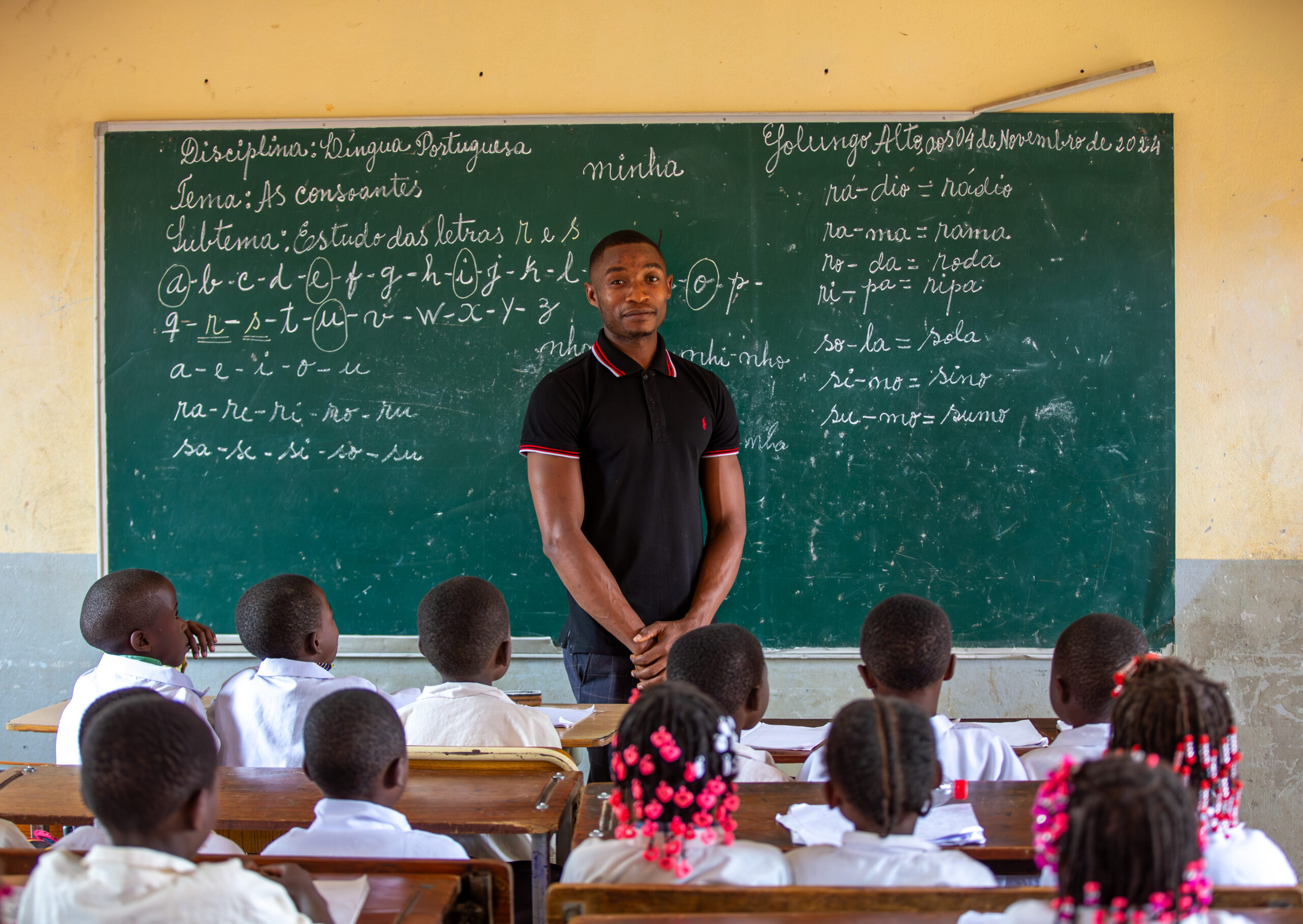
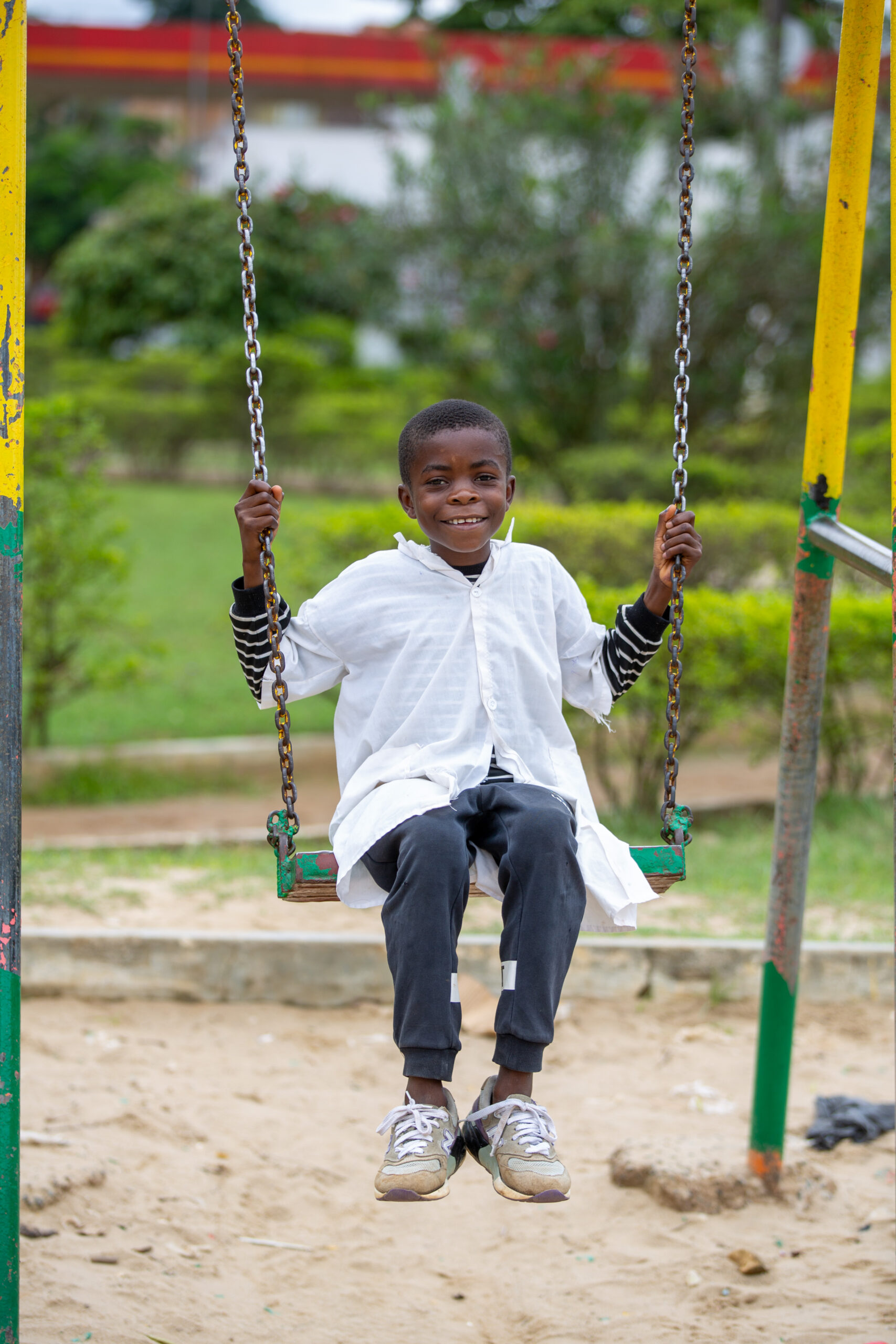
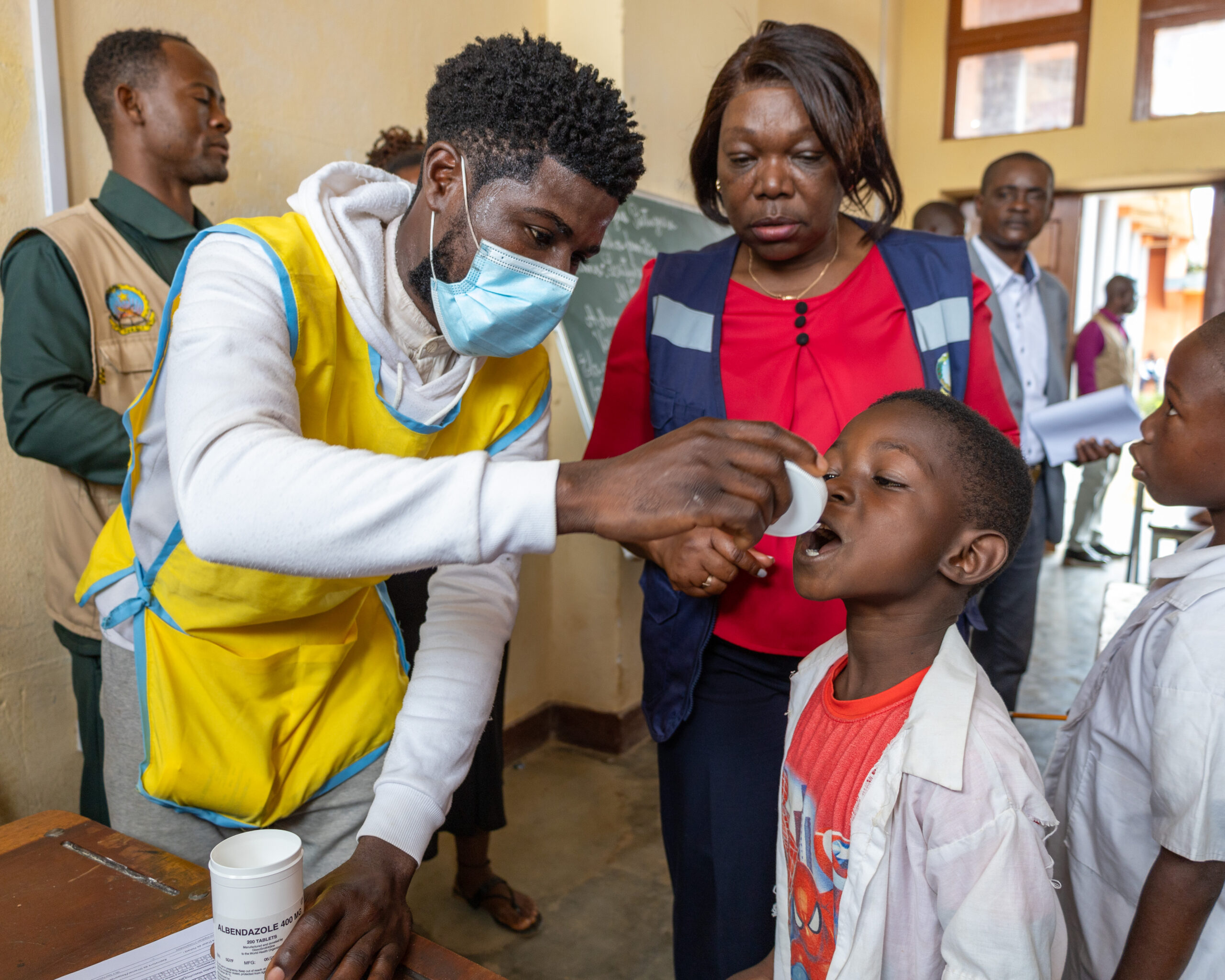
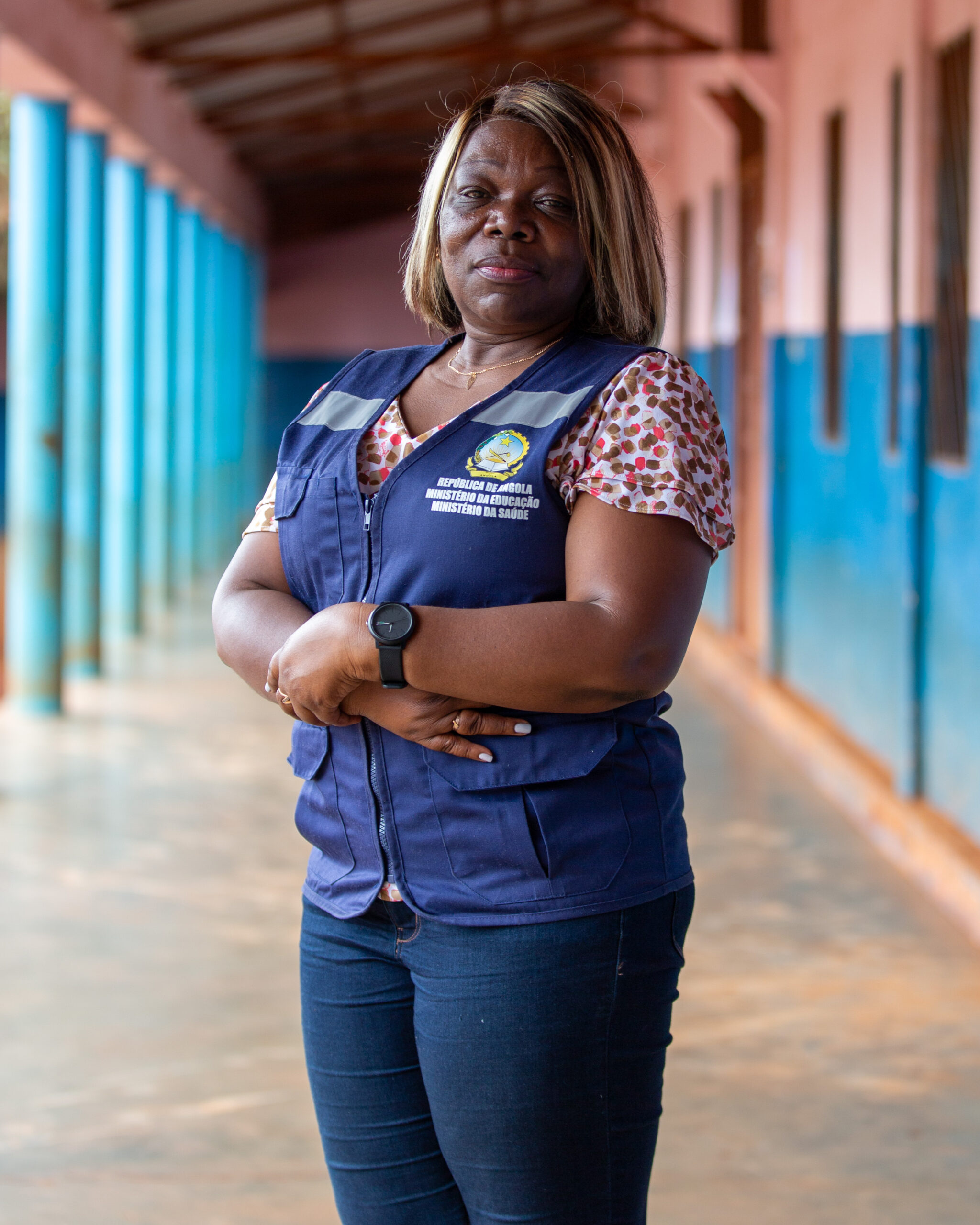
But these campaigns are not yet able to reach all children at risk of intestinal worms and schistosomiasis. In another part of the province of Cuanza Norte, the principal of Dondo village school points to a tired-looking 11-year-old student with an enlarged belly. The student’s name is Mário, and he says he has never taken deworming medication.
Dr. Cecília de Almeida, the national coordinator of Angola’s neglected tropical disease control program, explained that mapping to assess the levels of infection across the country has been critical to target treatment efforts. Angola’s National Strategic Plan for Neglected Tropical Diseases set a target to reduce by 75% the number of districts endemic for intestinal worms and schistosomiasis. However, there are multiple provinces with high levels of intestinal worms and schistosomiasis that do not yet receive treatment.
The gap comes down to resources. Luís Lufunda explained that mapping showed intestinal worms and schistosomiasis are significant problems in six provinces, but campaigns have yet to be conducted there due to a lack of funding. “If we had more support from donors, we could expand the program.”
It is estimated that 2.5 million school-age children and 1.4 million pre-school age children require regular treatment for intestinal worms in Angola. However, only 38% of at-risk school-age children and 22% of pre-school age children at risk received preventive treatment for intestinal worms in 2023. That same year, only 35% of the estimated 3.5 million school-age children requiring treatment for schistosomiasis were treated. Regular treatment not only improves children’s health, it also reduces the number of parasite eggs and larvae in the environment and drives down rates of infection. It is crucial that all areas with high levels of infection are treated regularly in order to break the cycle of infection and sustain the gains made.
“We need to take care of our children,” emphasized Dr. Cecília de Almeida. The continued commitment from partners to expand treatment is essential to ensure that no child at risk in Angola goes untreated.
